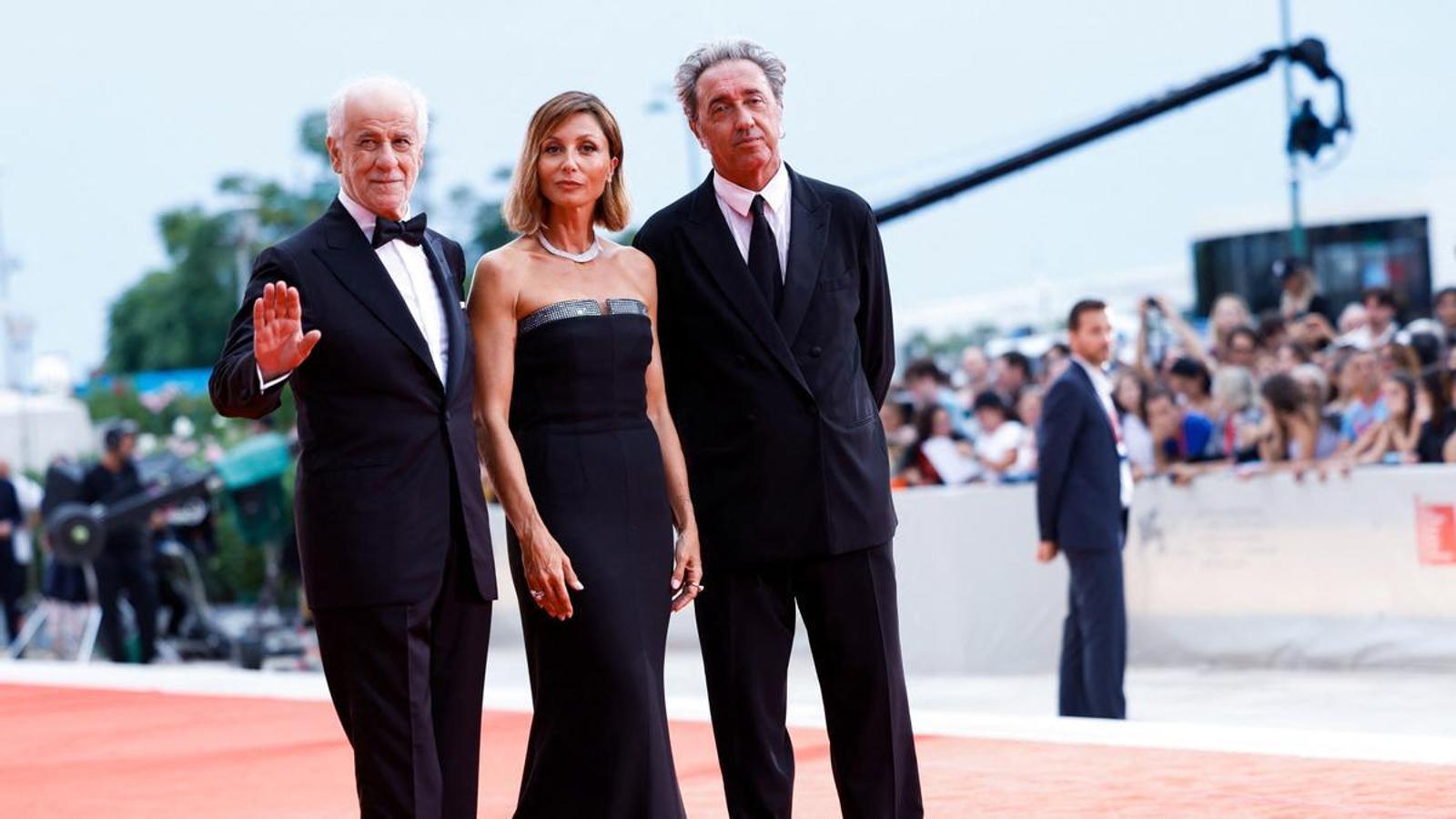Paolo Sorrentino premieres his best film since 'The Great Beauty' in Venice.
The Italian director opens the film festival with the restrained and moving 'La grazia'.

VeniceOne of the main objectives of the 82nd Venice Film Festival is to establish itself as a privileged showcase for the best Italian cinema. Accustomed to seeing the country's great filmmakers, such as Nanni Moretti and Alice Rohrwacher, present their works at Cannes, this year the veteran Italian festival is betting on local talent, starting with Paolo Sorrentino. Despite being a regular presence at the French event, the director of The great beauty has opened this year's Mostra with The grace, a film that broadens Sorrentino's approach to the universe of politics, a territory he already satirized in Il divo (2008) and in Silvio (and the others) (2018), two parody portraits of Giulio Andreotti and Silvio Berlusconi. At the press conference for the presentation of The grace In Venice, Sorrentino has expressed his interest in making a political film "at a historical moment in which ethics seems optional, elusive, opaque, or invoked only for instrumental reasons."
Honing his talent for composing characters touched by a strong awareness of their own decadence, Sorrentino focuses The grace, his best film since The great beauty (2013), in the figure of Mariano de Santis, a president of the Republic who has accepted with a mixture of resignation and melancholy his status as an irrelevant symbol of the Italian state. "We weren't inspired by a single president, but by many different profiles: Italian politicians, Germans, lawyers, fathers, and leaders from different backgrounds," explains Sorrentino. This myriad of influences converges in the character of De Santis, known in fiction by the nickname "Reinforced Cement" for his marble-like demeanor—Toni Servillo, Sorrentino's favorite actor, once again offers a masterclass in expressionless loquacity—and for his ability to stay out of political battles.
Light in the darkness
Despite Sorrentino's expressed interest in the ethical dimension of politics, it is difficult not to see The grace as an anachronistic work, disconnected from the present, in its refusal to offer any commentary on the rise of the far right in Italy. Mariano De Santis, who claims to be a representative of Christian Democracy and political tacticism, lives his last days in office immersed in the sadness caused by the death of his wife and accompanied by his daughter (played by Anna Ferzetti), his right-hand woman in legal matters. "The film offers the opportunity to move away from sentimental clichés and to bring the father-daughter relationship into a realm of intellectual debate," says Servillo. "The De Santises, father and daughter, are in love with the law, which turns each encounter between them into a clash of ideas, as well as an exchange of affections." In fact, this moving portrait of a family unit in which an extremely rigid father learns to break with prejudices with the help of his daughter turns The grace In one of Sorrentino's most luminous works.
In a commendable display of coherence between content and form, Sorrentino accompanies Mariano de Santis's search for a certain existential lightness with a moderately contained, unemphatic aesthetic proposal, something exceptional by the standards of the author of Parthenope (2024). Shifting the focus from the precious abuse of his later films to the creation of a fascinating and contradictory character – De Santis is a devotee of classical dogma, but secretly adores the rapper Guè – Sorrentino crafts a bittersweet and romantic account of the experience of aging.
It is possible that The grace may suffer from a tendency toward redundancy, and the running time of more than two hours may be somewhat excessive, but rarely has Sorrentino's bombastic and pyrotechnic writing pulsed with such pertinence and emotion. "You place too much value on the truth," the bodyguard tells De Santis, who replies: "It's a pure professional deformation of judges." Thus, this academic president of the Republic expresses his desire to transcend the attachment to the truth in order to conquer the grace that gives the film its title, a grace understood as the beauty of doubt.
